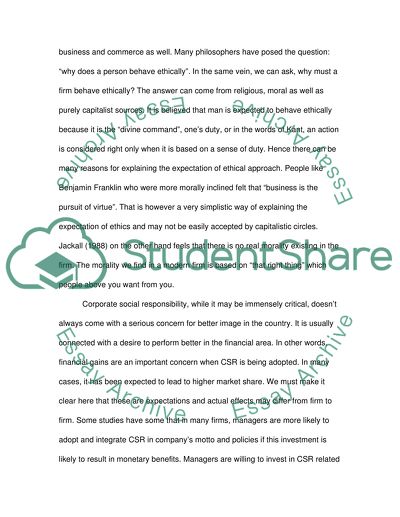Cite this document
(“Corporate Social Responsibility (Business Ethics) Essay”, n.d.)
Corporate Social Responsibility (Business Ethics) Essay. Retrieved from https://studentshare.org/miscellaneous/1506312-corporate-social-responsibility-business-ethics
Corporate Social Responsibility (Business Ethics) Essay. Retrieved from https://studentshare.org/miscellaneous/1506312-corporate-social-responsibility-business-ethics
(Corporate Social Responsibility (Business Ethics) Essay)
Corporate Social Responsibility (Business Ethics) Essay. https://studentshare.org/miscellaneous/1506312-corporate-social-responsibility-business-ethics.
Corporate Social Responsibility (Business Ethics) Essay. https://studentshare.org/miscellaneous/1506312-corporate-social-responsibility-business-ethics.
“Corporate Social Responsibility (Business Ethics) Essay”, n.d. https://studentshare.org/miscellaneous/1506312-corporate-social-responsibility-business-ethics.


